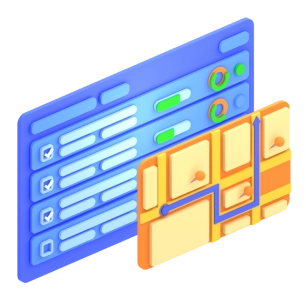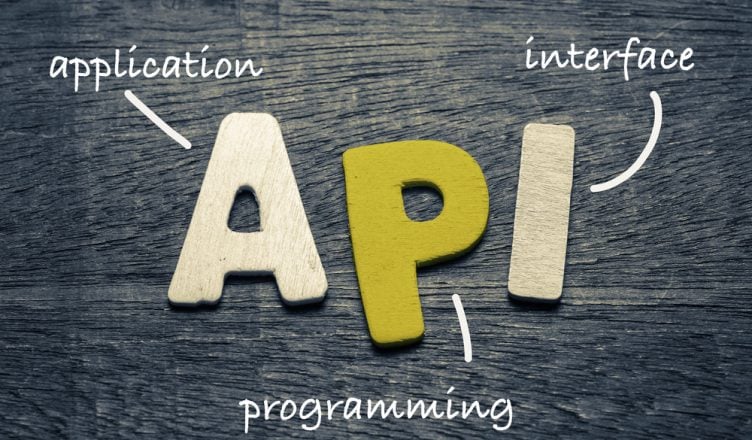Are you afraid that adopting route optimization software will bog down your business with extra staff training and download time?
That’s a valid concern, but there’s a way to take advantage of route mapping software without running into those issues. You can integrate a route optimization API with your existing systems to support your last mile delivery initiatives.
What is Route Optimization?
Route optimization is the process of planning one or multiple routes, with the purpose of minimizing overall costs, while achieving the highest possible performance under a set of given constraints and considering other routes which share the same purpose.
What On Earth Is An API?
First things first – what’s an API? (Feel free to skip to the next section if you’re already familiar.)
API stands for Application Programming Interface. Basically, APIs are what allow different computer programs to “talk” to each other.
You may not have seen the acronym API until now, but you use APIs pretty much every time you use a computer.
Ever copied text from a word processor like Microsoft Word and pasted it into a spreadsheet program like Microsoft Excel? An API is what made that possible. It’s also what lets businesses use third-party credit card processors on their sites.
Want To See For Yourself How Route4Me Can Boost Your Profits?

APIs open up golden opportunities for increasing profits. Consider Uber and Facebook: they’re both internet platforms that make it easy for other programs to integrate via APIs, which gives them a serious advantage over their competitors. Of course, firms like Uber and Facebook are digital by nature, but these concepts can be harnessed by just about any business in any industry.
The more you know about your customers, the easier it is to keep them happy. Keeping your customers happy will convince them to stay your customers rather than drifting over to one of your competitors.
Understanding your current customers better will also help you design marketing strategies that are more appealing to potential customers.
APIs give you more “touch points” to interact with customers, so you’ll know more about them. You’ll understand what they like and how they think. You’ll even be able to predict future behavior.
Why Choose An API For Last Mile Delivery Route Optimization Software?
There are many moving parts involved with route planning. Using multiple programs to organize everything can get quite confusing.
Imagine if, instead, you could combine planning, dispatch, execution, and post-execution duties all in one place.
With an API, you can do exactly that.
A cloud-based, plug-and-play route planning tool is highly mobile. It can operate on Windows, Android, iOS… whatever you need. Users can view data in real-time, and you can even integrate data with third parties, such as GPS units.
Modern API technology at the very least should offer the following features:
- Fulltext search, including searching within captured images
- Historical gps tracking and driving data
- Track and trace of driver vehicle locations
- Dynamic routing optimization
- Real-time re-optimization of routes based on newly dispatched information
- Time window capabilities to arrive onsite on time
- Constraints (for example, left turns or bridge heights)
- Geofencing which automatically marks locations as visited, departed, and completed
- Dozens or hundreds of stops per route, planned for any number of drivers
And all of this will be centralized instead of sitting in a standalone system that’s isolated from the rest of your daily tasks.
What Else Can A Route Optimization API Do For Me?
All-in-one route scheduling software can be big, clunky, and obscure. It may have the features you need, but it’ll have a bunch of junk you have no use for, too.
An API integration is a more specific solution. It can be tailored to meet your exact needs. It’s simpler, smaller, and easier to implement.
There are same delivery software API interfaces that support real-time callbacks. You can set it up so that the customer automatically receives a notification every time a checkpoint is reached.
Final mile delivery software can be integrated with your sales platform as well. You can automate the transfer of addresses from your sales platform to your route planner, which will save you time and eliminate the possibility of data entry errors.
Is An API Hard To Manage?
There is a lot of work that goes into making sure an API-style integration is seamless… but that’s not something you need to worry about. On your end, everything should be quick and easy.
The best integrations occur when the hosting API company handles the programming for you. You’re looking for a convenient solution, right? Developing your own system – or even adapting a system that someone else developed – can take a huge amount of time and effort. It shouldn’t be your load to carry. Let someone else handle it.
So, what do you think? Does a route optimization software API integration sound like the right choice for your company? If you have any questions, please let us know in the comments section below.
Want To See For Yourself How Route4Me Can Boost Your Profits?








